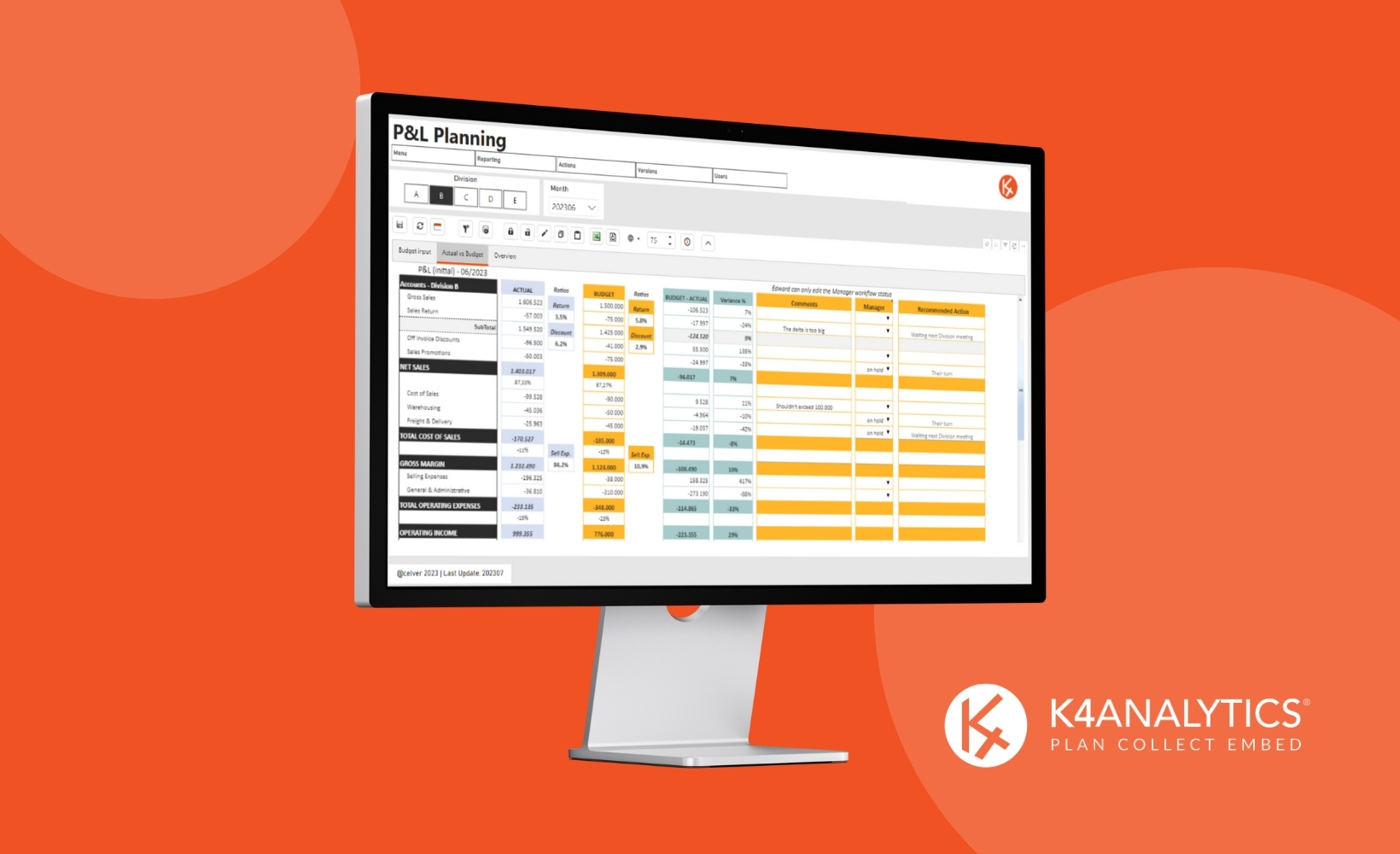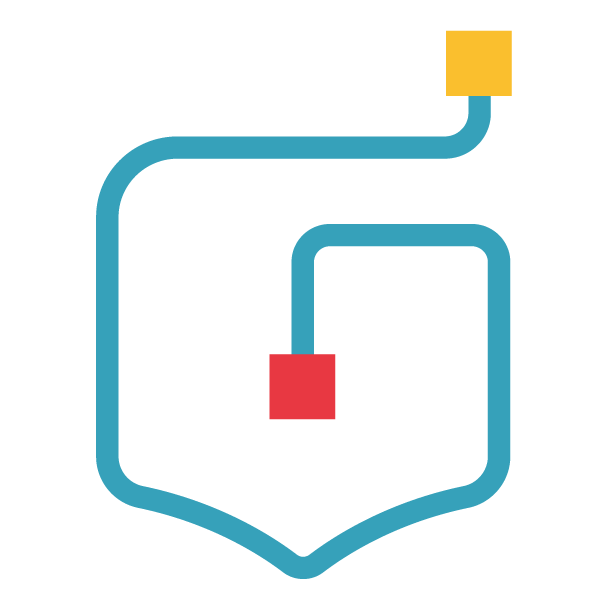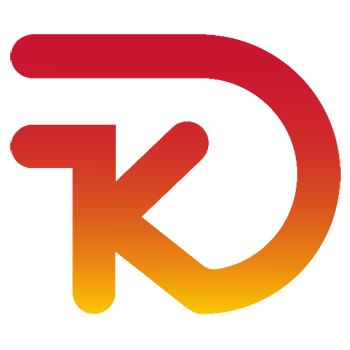One of the greatest competitive advantages that a hotel or hotel chain can develop is the ability to make decisions based on its own data. But having a large amount of data is not the same as having useful information to make decisions, and this is where Business Intelligence (BI) for hotels comes into play.
This type of solution allows you to analyze data in depth and use it accurately to make informed decisions in a way that has never been possible before.
And that’s what we talk about in this article: how business intelligence applied to the hotel industry can transform management and improve the performance of hotels and chains.
Why apply business intelligence in the hotel industry.
Many hotel businesses export data from their PMS (Property Management System) to spreadsheets which are then used to prepare reports. This practice requires many hours of work and, in addition, is very susceptible to errors due to the manual processing of the information.
A BI tool, as an alternative, can automatically collect, analyze and generate reports, enabling hotels to optimize operations and improve both customer satisfaction and revenue.
A BI solution can unify all information from different sources, such as PMS, CRM, booking platforms and even social media, providing a holistic view of customer behavior.
This makes it easier to control rate parity between channels, ensure greater consistency in pricing and more strategically manage dependency on OTAs to optimize commissions and even boost direct bookings.
Advantages of using Business Intelligence in hotels.
Having an automated and centralized source of information for all departments.
The information obtained through BI systems allows transforming data into information that can be used in decision making in the short, medium and long term.
This information is reflected in reports that are generated automatically, which has a direct impact on the staff hours that are necessary to process this information manually, and which can now be used for higher value-added activities.
In addition, having a unified data source allows all departments to be aligned and make decisions based on the same information, favoring a more collaborative work.
This information can be used for marketing activities (customer data, purchasing behavior, satisfaction, etc.), revenue management (variables that influence price and revenue), fiscal activities (control of expenses and budgets, financial forecasts), human resources (employees, productivity), etc.
Greater agility and granularity in data analysis.
Business intelligence allows a more agile and granular analysis than the traditional use of Excel or other manual methods, making data available in real time for those moments when a quick response to market changes or competitor movements is required.
With BI, hotels can segment data by customer type, room type or time of year, allowing dynamic adaptations to market conditions. Interactive visualizations facilitate the understanding of metrics and allow hotel managers to visualize patterns and trends at a glance, optimizing decision making.
BI introduces automation in reporting, which can be customized into dashboards to suit the needs of each business to make it easier to understand information and transform it into action.
Thanks to advanced processing capabilities, BI enables the creation of predictive analytics, identifying behavioral patterns and anticipating demands, resulting in improved efficiency and accuracy in decision making.
Optimization of key processes.
Through BI tools, hotels can optimize some of the most important processes for their operation:
- Dynamic pricing: the ability to adjust rates in real time according to demand and competition allows maximizing revenues in different occupancy scenarios.
- Cost control: BI facilitates the monitoring of operating expenses, identifying areas where it is possible to reduce costs without compromising service quality.
- Marketing segmentation: by analyzing demographic and behavioral data, hotels can personalize marketing campaigns and target specific market segments, increasing effectiveness and ROI.
- Evaluation of distribution channel performance: measuring the effectiveness of each channel allows adjusting distribution strategies, optimizing channels that generate more direct bookings and improving profitability.
- Identifying trends and patterns: by analyzing historical and current data, BI tools can help identify trends and patterns that would not otherwise be evident.
Increased economic performance of the business.
Data analysis through BI tools can reveal inefficiencies in operational and/or business processes, allowing adjustments or corrective actions to be made if necessary.
In addition, there are a wide number of indicators and KPIs (as we see below) that can be monitored on an ongoing basis, helping management to evaluate and measure the impact of decisions at all times.
Key KPIs in business intelligence for the hotel industry.
Key performance indicators (KPIs) help hotels measure their success in key areas. These KPIs vary in importance depending on the type of hotel, its market and its customer profile, but some of the fundamental ones to keep in mind are:
- RevPAR (Revenue per Available Room): revenue per available room, helping to assess economic performance and occupancy.
- ADR (Average Daily Rate): average daily rate of rooms sold, essential to understand the profitability of each occupied night.
- Occupancy Rate: percentage of occupied rooms, a central indicator for hotel operations.
- ALOS (Average Length of Stay): average length of stay, relevant for adjusting offers and services based on customer behavior.
- CPOR (Cost per Occupied Room): cost per occupied room, allowing better control of operating expenses.
- Cancellation Rate and No Shows: helps to forecast occupancy and adjust the offer, avoiding revenue losses.
- Other Revenues: such as spa services, catering and events, which contribute to added value and revenue diversification.
Boost your hotel’s performance with a business intelligence solution.
Business intelligence is an essential tool for hotels looking to adapt to an ever-changing market and stay one step ahead.
In this sense, each hotel is unique in terms of needs and challenges, so the key to success when implementing BI solutions is to opt for a customized approach tailored to each business.
If this is your case and you are interested in implementing a customized BI solution, do not hesitate to contact us. At Holistic Data Solutions we can help you develop a customized BI system for your hotel.
Related Articles
Time and money. If we were to carry out a market survey and ask finance directors, entrepreneurs or heads of [...]
Finance is a vital area for any company. In a context marked by instability and volatility, it is more important [...]
Article about the role of purchasing in retail and the importance of purchasing reporting in retail results
















